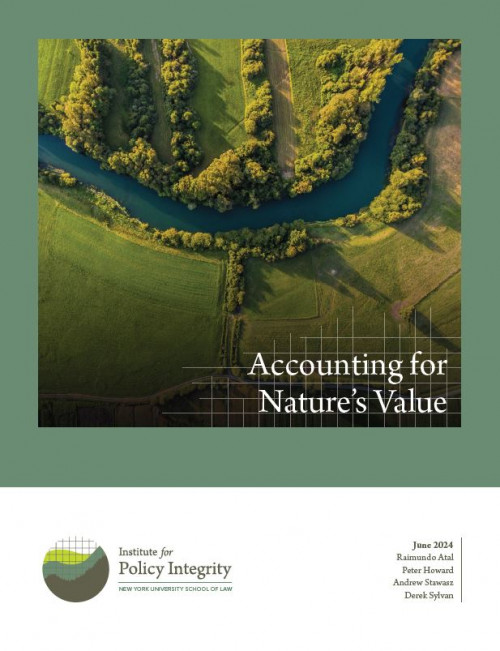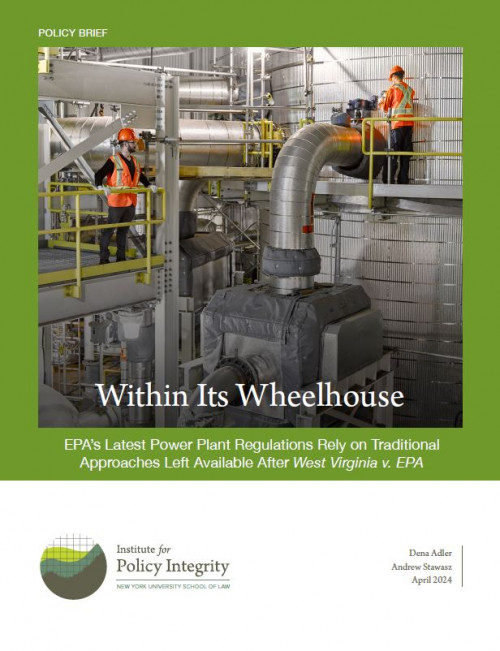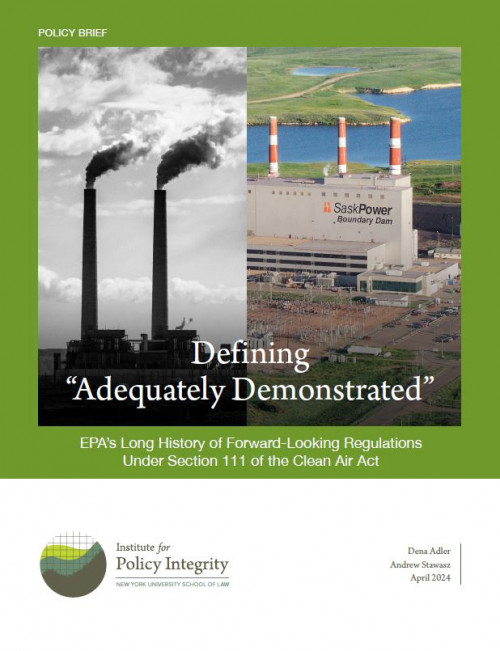-

Consensus on Carbon Dioxide Removal
A Large-Sample Expert Elicitation on the Future of CDR
Many analysts project that large-scale, widespread carbon dioxide removal (CDR) will be necessary to reach net-zero greenhouse gas emissions, and thereby stop exacerbating climate change before United Nations temperature limits are exceeded this century. However, concerns about costs, technological constraints, safety, environmental justice impacts, moral hazard, and other issues contribute to tremendous uncertainty about the future of CDR. Expert elicitation—the process of formally eliciting the views of relevant subject matter experts to gain insight on complex or uncertain topics—can theoretically help clarify consensus on CDR-related issues. We conducted an expert elicitation on issues related to CDR, surveying an interdisciplinary group of 699 researchers who had published at least one article on CDR in a leading academic journal.
-
Accounting for Nature’s Value
National accounts—which measure a country’s aggregate economic activity, including Gross Domestic Product (GDP)—largely ignore natural capital and ecosystem services. This omission occurs because national accounts heavily rely on market transactions to identify and value economic activity, whereas ecosystems’ contributions occur most commonly outside markets. This leads governments, businesses, and decisionmakers to ignore or misidentify some sources and uses of their income and wealth, skewing their decisionmaking. Recognizing these shortcomings, many countries, including the United States, are increasingly moving towards Natural Capital Accounting (NCA), a system of measuring natural capital and ecosystem services in a way that allows for their integration with national accounts. In this report, we provide an overview of NCA for non-economists.
-

The Social Cost of Greenhouse Gases: An Overview
A Primer on EPA’s Updated Values for Policymakers and Practitioners
In December 2023, EPA finalized updated values for the social cost of greenhouse gases (SC-GHG), following public comment and expert peer review. The agency derived these estimates using the best available science and economics, and the estimates represent a significant step forward in our ability to properly value climate effects. The brief is intended to introduce policymakers and practitioners to the SC-GHG, break down EPA's updated values, and explain why they represent a powerful tool that can streamline decisionmaking and policy analysis.
-
Within Its Wheelhouse
EPA’s Latest Power Plant Regulations Rely on Traditional Approaches Left Available After West Virginia v. EPA
In May 2023, EPA proposed new limits for greenhouse gas (GHG) emissions from certain fossil-fuel-fired power plants under Section 111 of the Clean Air Act. Some critics have suggested that EPA’s new rule triggers the major questions doctrine. Under that doctrine, a court should look skeptically on the agency action in extraordinary cases involving unprecedented and transformative applications of agency authority. But the major questions doctrine is inapplicable to EPA’s use of CCS in its proposed regulations. Rather than propose a new approach that would transform its exercise of statutory authority, EPA has embraced one of its most traditional and well-established regulatory practices: setting emission limits based on pollution controls that cause a regulated source to operate more cleanly. This policy brief details why EPA’s latest proposal to limit GHG emissions from power plants fits neatly within the bounds of the legal authority left intact after West Virginia. It then explains how states and operators retain flexibility to use emission trading and averaging programs to implement EPA’s regulations.
-
Defining “Adequately Demonstrated”
EPA’s Long History of Forward-Looking Standards Under Section 111 of the Clean Air Act
In May 2023, the Environmental Protection Agency (EPA) proposed new limits for greenhouse gas (GHG) emissions from certain fossil-fuel-fired power plants under Section 111 of the Clean Air Act. Section 111 requires EPA to set limits reflecting the emission reductions achievable by applying what the agency determines to be the “best system of emission reduction” (BSER) that “has been adequately demonstrated,” and that meets certain other statutory factors. This policy brief summarizes the legal framework of Section 111 (including the legislative history and caselaw relevant to understanding its technology-forcing nature), walks through how courts have interpreted “adequately demonstrated,” reviews EPA’s past use of Section 111 to drive technology improvements, and explains why a potential Supreme Court decision that eliminates or curtails Chevron deference (a legal doctrine providing deference to reasonable agency interpretations of ambiguous statutory language) would not affect the longstanding interpretation of “adequately demonstrated.”
Viewing all publications in Reports



